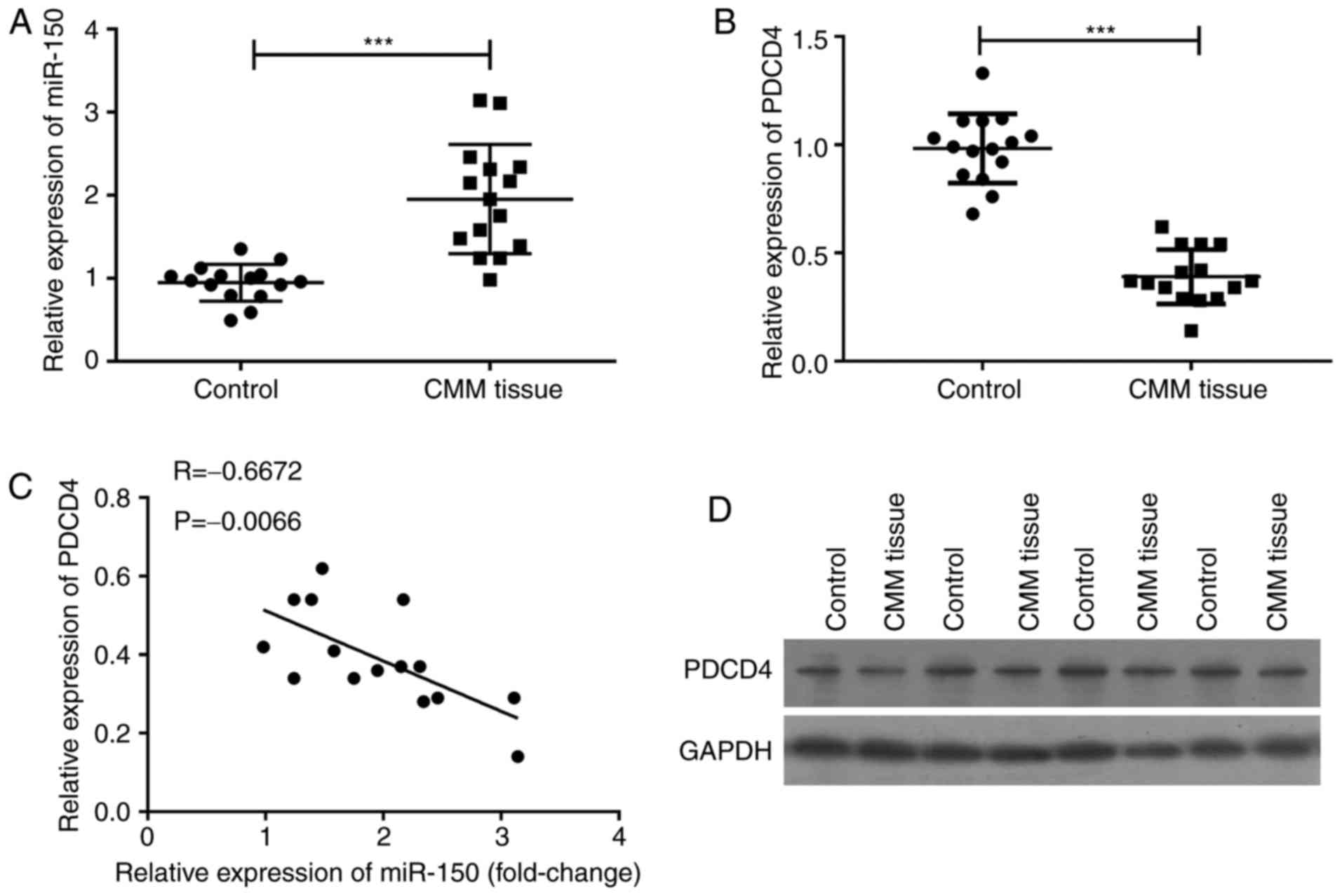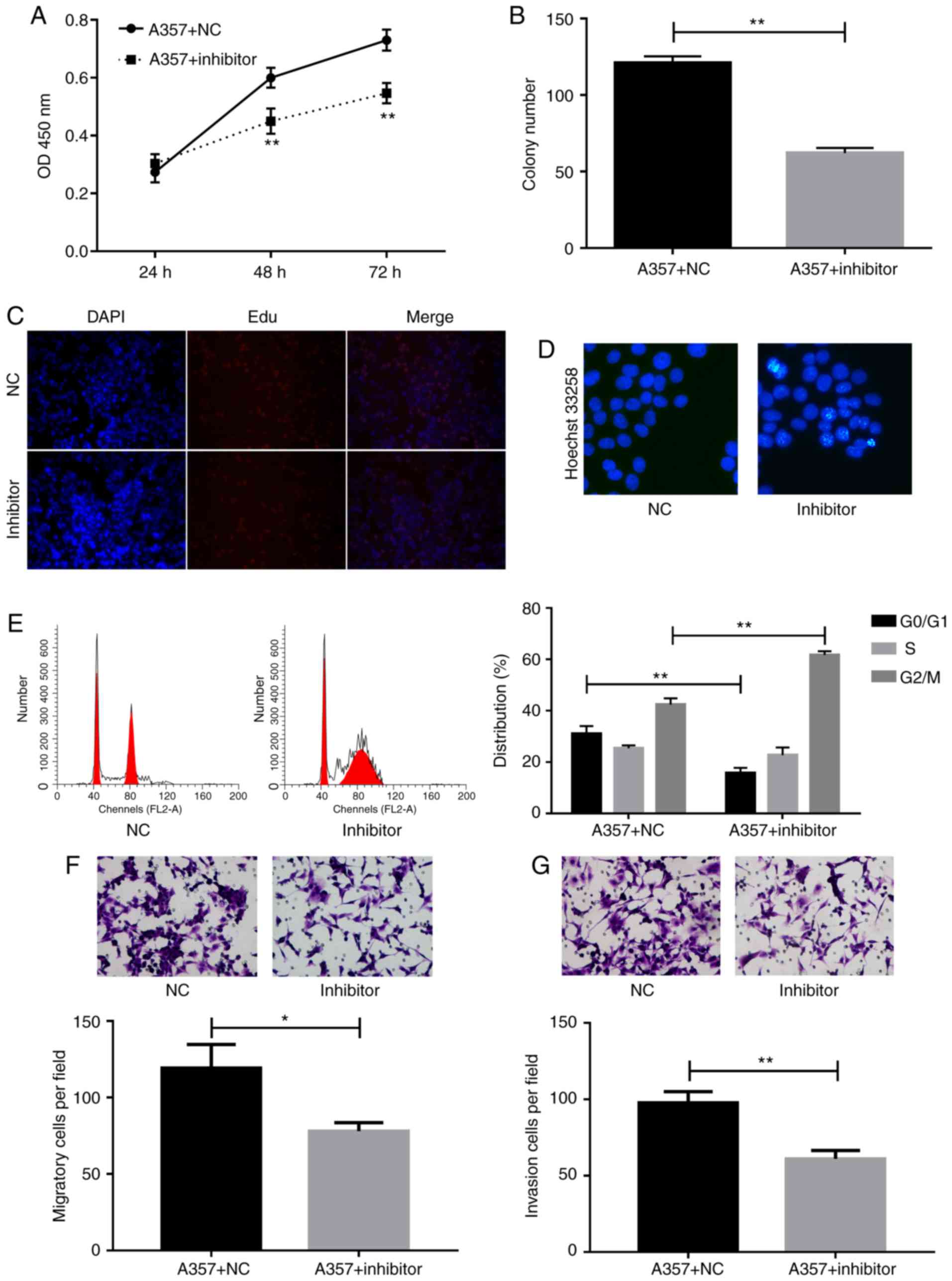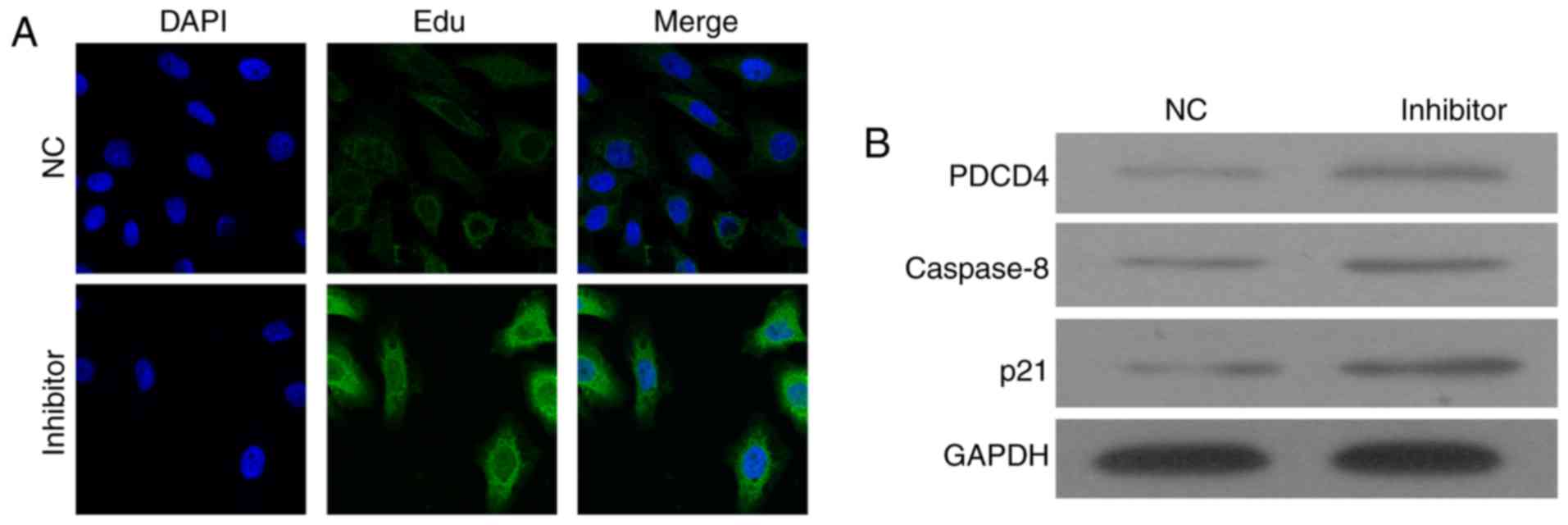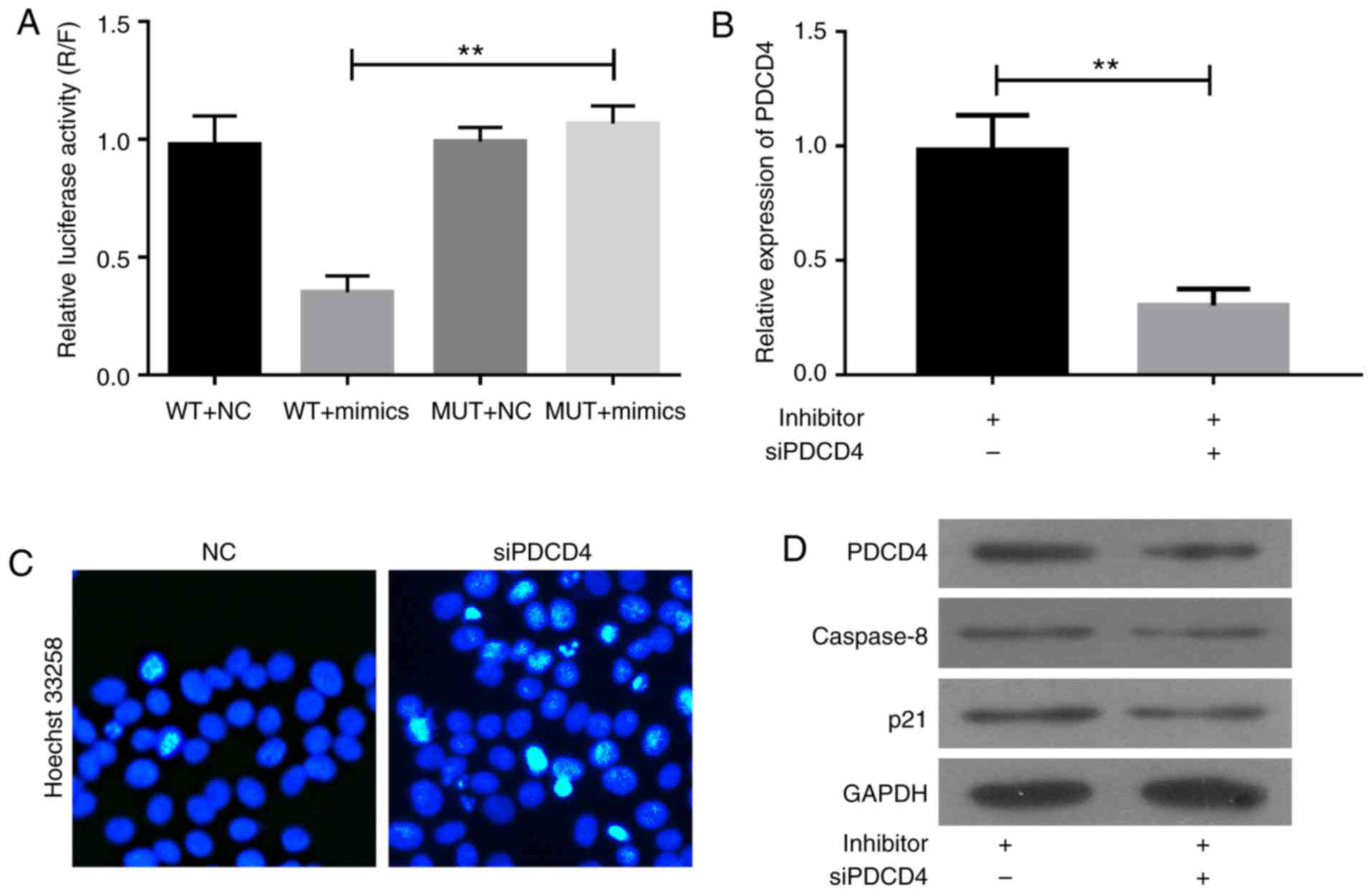|
1
|
Kosary CL, Altekruse SF, Ruhl J, Lee R and
Dickie L: Clinical and prognostic factors for melanoma of the skin
using SEER registries: Collaborative stage data collection system,
version 1 and version 2. Cancer. 23 Suppl 120:S3807–S3814. 2014.
View Article : Google Scholar
|
|
2
|
Coit DG, Thompson JA, Andtbacka R, Anker
CJ, Bichakjian CK, Carson WE III, Daniels GA, Daud A, Dimaio D,
Fleming MD, et al: Melanoma, version 4.2014. J Natl Compr Canc
Netw. 12:621–629. 2014. View Article : Google Scholar : PubMed/NCBI
|
|
3
|
Siegel RL, Miller KD and Jemal A: Cancer
statistics, 2015. CA Cancer J Clin. 65:5–29. 2015. View Article : Google Scholar : PubMed/NCBI
|
|
4
|
Siegel RL, Miller KD and Jemal A: Cancer
Statistics, 2017. CA Cancer J Clin. 67:7–30. 2017. View Article : Google Scholar : PubMed/NCBI
|
|
5
|
Rastrelli M, Tropea S, Rossi CR and
Alaibac M: Melanoma: Epidemiology, risk factors, pathogenesis,
diagnosis and classification. In Vivo. 28:1005–1011.
2014.PubMed/NCBI
|
|
6
|
Hao M, Zhao G, Du X, Yang Y and Yang J:
Clinical characteristics and prognostic indicators for metastatic
melanoma: Data from 446 patients in north China. Tumour Biol.
37:10339–10348. 2016. View Article : Google Scholar : PubMed/NCBI
|
|
7
|
Song X, Zhao Z, Barber B, Farr AM, Ivanov
B and Novich M: Overall survival in patients with metastatic
melanoma. Curr Med Res Opin. 31:987–991. 2015. View Article : Google Scholar : PubMed/NCBI
|
|
8
|
Eriksson H, Frohm-Nilsson M, Järås J,
Kanter-Lewensohn L, Kjellman P, Månsson-Brahme E, Vassilaki I and
Hansson J: Prognostic factors in localized invasive primary
cutaneous malignant melanoma: Results of a large population-based
study. Br J Dermatol. 172:175–186. 2015. View Article : Google Scholar : PubMed/NCBI
|
|
9
|
Pan Y, Haydon AM, McLean CA, McDonald PB
and Kelly JW: Prognosis associated with cutaneous melanoma
metastases. Australas J Dermatol. 56:25–28. 2015. View Article : Google Scholar : PubMed/NCBI
|
|
10
|
Lin X, Khalid S, Qureshi MZ, Attar R,
Yaylim I, Ucak I, Yaqub A, Fayyaz S, Farooqi AA and Ismail M: VEGF
mediated signaling in oral cancer. Cell Mol Biol (Noisy-le-grand).
62:64–68. 2016. View Article : Google Scholar : PubMed/NCBI
|
|
11
|
Oliveto S, Mancino M, Manfrini N and Biffo
S: Role of microRNAs in translation regulation and cancer. World J
Biol Chem. 8:45–56. 2017. View Article : Google Scholar : PubMed/NCBI
|
|
12
|
Calin GA and Croce CM: MicroRNA signatures
in human cancers. Nat Rev Cancer. 6:857–866. 2006. View Article : Google Scholar : PubMed/NCBI
|
|
13
|
Esquela-Kerscher A and Slack FJ:
Oncomirs-microRNAs with a role in cancer. Nat Rev Cancer.
6:259–269. 2006. View
Article : Google Scholar : PubMed/NCBI
|
|
14
|
Stein M, Ruggiero P, Rappuoli R and
Bagnoli F: Helicobacter pylori CagA: From pathogenic mechanisms to
its use as an anti-cancer vaccine. Front Immunol. 4:3282013.
View Article : Google Scholar : PubMed/NCBI
|
|
15
|
Bentwich I, Avniel A, Karov Y, Aharonov R,
Gilad S, Barad O, Barzilai A, Einat P, Einav U, Meiri E, et al:
Identification of hundreds of conserved and nonconserved human
microRNAs. Nat Genet. 37:766–770. 2005. View Article : Google Scholar : PubMed/NCBI
|
|
16
|
Zhang R, Peng Y, Wang W and Su B: Rapid
evolution of an X-linked microRNA cluster in primates. Genome Res.
17:612–617. 2007. View Article : Google Scholar : PubMed/NCBI
|
|
17
|
Kunz M: MicroRNAs in melanoma biology. Adv
Exp Med Biol. 774:103–120. 2013. View Article : Google Scholar : PubMed/NCBI
|
|
18
|
Shiiyama R, Fukushima S, Jinnin M,
Yamashita J, Miyashita A, Nakahara S, Kogi A, Aoi J, Masuguchi S,
Inoue Y and Ihn H: Sensitive detection of melanoma metastasis using
circulating microRNA expression profiles. Melanoma Res. 23:366–372.
2013. View Article : Google Scholar : PubMed/NCBI
|
|
19
|
Tembe V, Schramm SJ, Stark MS, Patrick E,
Jayaswal V, Tang YH, Barbour A, Hayward NK, Thompson JF, Scolyer
RA, et al: MicroRNA and mRNA expression profiling in metastatic
melanoma reveal associations with BRAF mutation and patient
prognosis. Pigment Cell Melanoma Res. 28:254–266. 2015. View Article : Google Scholar : PubMed/NCBI
|
|
20
|
Fleming NH, Zhong J, da Silva IP, de Miera
Vega-Saenz E, Brady B, Han SW, Hanniford D, Wang J, Shapiro RL,
Hernando E and Osman I: Serum-based miRNAs in the prediction and
detection of recurrence in melanoma patients. Cancer. 121:51–59.
2015. View Article : Google Scholar : PubMed/NCBI
|
|
21
|
Thanarajasingam U, Sanz L, Diaz R, Qiao J,
Sanchez-Perez L, Kottke T, Thompson J, Chester J and Vile RG:
Delivery of CCL21 to metastatic disease improves the efficacy of
adoptive T-cell therapy. Cancer Res. 67:300–308. 2007. View Article : Google Scholar : PubMed/NCBI
|
|
22
|
Mullins IM, Slingluff CL, Lee JK, Garbee
CF, Shu J, Anderson SG, Mayer ME, Knaus WA and Mullins DW: CXC
chemokine receptor 3 expression by activated CD8+ T cells is
associated with survival in melanoma patients with stage III
disease. Cancer Res. 64:7697–7701. 2004. View Article : Google Scholar : PubMed/NCBI
|
|
23
|
Latchana N, Ganju A, Howard JH and Carson
WE III: MicroRNA dysregulation in melanoma. Surg Oncol. 25:184–189.
2016. View Article : Google Scholar : PubMed/NCBI
|
|
24
|
Li JZ, Gao W, Ho WK, Lei WB, Wei WI, Chan
JY and Wong TS: The clinical association of programmed cell death
protein 4 (PDCD4) with solid tumors and its prognostic
significance: A meta-analysis. Chin J Cancer. 35:952016. View Article : Google Scholar : PubMed/NCBI
|
|
25
|
Mao XH, Chen M, Wang Y, Cui PG, Liu SB and
Xu ZY: MicroRNA-21 regulates the ERK/NF-κB signaling pathway to
affect the proliferation, migration, and apoptosis of human
melanoma A375 cells by targeting SPRY1, PDCD4, and PTEN. Mol
Carcinog. 56:886–894. 2017. View
Article : Google Scholar : PubMed/NCBI
|
|
26
|
Naves LB, Dhand C, Venugopal JR, Rajamani
L, Ramakrishna S and Almeida L: Nanotechnology for the treatment of
melanoma skin cancer. Prog Biomater. 6:13–26. 2017. View Article : Google Scholar : PubMed/NCBI
|
|
27
|
Mueller DW and Bosserhoff AK: Role of
miRNAs in the progression of malignant melanoma. Br J Cancer.
101:551–556. 2009. View Article : Google Scholar : PubMed/NCBI
|
|
28
|
Zhang N, Wei X and Xu L: miR-150 promotes
the proliferation of lung cancer cells by targeting P53. FEBS Lett.
587:2346–2351. 2013. View Article : Google Scholar : PubMed/NCBI
|
|
29
|
Tagawa H, Watanabe A and Sawada K:
Abstract 146: The role of Mir-150 as a tumor suppressor in
malignant lymphoma. Cancer Res. 71 8 Suppl:S1462011. View Article : Google Scholar
|
|
30
|
Li CH, Yu TB, Qiu HW, Zhao X, Zhou CL and
Qi C: miR-150 is downregulated in osteosarcoma and suppresses cell
proliferation, migration and invasion by targeting ROCK1. Oncol
Lett. 13:2191–2197. 2017. View Article : Google Scholar : PubMed/NCBI
|
|
31
|
Ma Y, Zhang P, Wang F, Zhang H, Yang J,
Peng J, Liu W and Qin H: miR-150 as a potential biomarker
associated with prognosis and therapeutic outcome in colorectal
cancer. Gut. 61:1447–1453. 2012. View Article : Google Scholar : PubMed/NCBI
|
|
32
|
Huang S, Chen Y, Wu W, Ouyang N, Chen J,
Li H, Liu X, Su F, Lin L and Yao Y: miR-150 promotes human breast
cancer growth and malignant behavior by targeting the pro-apoptotic
purinergic P2X7 receptor. PLoS One. 8:e807072013. View Article : Google Scholar : PubMed/NCBI
|
|
33
|
Friedman EB, Shang S, de Miera EV, Fog JU,
Teilum MW, Ma MW, Berman RS, Shapiro RL, Pavlick AC, Hernando E, et
al: Serum microRNAs as biomarkers for recurrence in melanoma. J
Transl Med. 10:1552012. View Article : Google Scholar : PubMed/NCBI
|
|
34
|
Colburn NH, Yang HS and Jansen A: Pdcd4
targets eIF4A to inhibit translation, transcription, tumorigenesis
and invasion. EJC Suppl. 4:232006. View Article : Google Scholar
|
|
35
|
Li JZ, Gao W, Lei WB, Zhao J, Chan JY, Wei
WI, Ho WK and Wong TS: MicroRNA 744-3p promotes MMP-9-mediated
metastasis by simultaneously suppressing PDCD4 and PTEN in
laryngeal squamous cell carcinoma. Oncotarget. 7:58218–58233. 2016.
View Article : Google Scholar : PubMed/NCBI
|
|
36
|
Vikhreva PN and Korobko IV: Expression of
Pdcd4 tumor suppressor in human melanoma cells. Anticancer Res.
34:2315–2318. 2014.PubMed/NCBI
|
|
37
|
Lei Y, Hu X, Li B, Peng M, Tong S, Zu X,
Wang Z, Qi L and Chen M: miR-150 modulates cisplatin
chemosensitivity and invasiveness of muscle-invasive bladder cancer
cells via targeting PDCD4 in vitro. Med Sci Monit. 20:1850–1857.
2014. View Article : Google Scholar : PubMed/NCBI
|



















